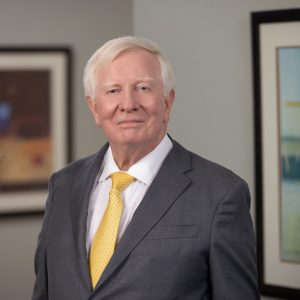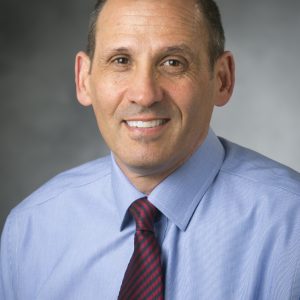CEO Leadership Series: Ira C. Spector, Ph.D., CEO, SFA Therapeutics

HOW NON-TRADITIONAL THINKING LED TO OPTIMIZED PROCESSES AND CAREER ADVANCEMENT
Ira Spector has been CEO of SFA Therapeutics for six months, and the startup has hit the ground running.
Based in Jenkintown, Pa., SFA is developing microbiome-derived metabolites as drugs treatments for a variety of chronic inflammatory diseases, and the development-stage bio-pharmaceutical company has already shepherded two drugs into its pipeline—an oral treatment for psoriasis and a treatment for Hepatitis B and other liver conditions. SFA has also filed seven provisional patents for a wide variety of therapies, including treatment to prevent autoimmune diseases in C-section neonates, with more on the way in 2018. The name SFA comes from the initials of the last names of Spector and the co-inventors of the underlying metabolite technology, Dr. Mark Feitelson and Dr. Alla Arzumanyan, who also hold positions in the company.
Dr. Spector believes SFA’s approach will result in faster drug development with higher probabilities for success. How that will be accomplished lies just as much in his own theories on process improvement as it does in the promise of the drug treatments themselves.
In an interview with Ashton Tweed, Dr. Spector discusses his own theories on process improvement and lifelong learning, and why he sees SFA as “a drug company in a box”:
First of all, what exactly is a microbiome?
The microbiome is the environment that exists wherever the human body interacts with the external world. We believe the microbiome is actually a factory where compounds are made that are used within the human body. When people think about the microbiome, they think about the gastrointestinal microbiome. But there’s actually more than one microbiome; the gut, skin, reproductive, oral and airways are the five classic microbiomes.
SFA already has two drugs in the pipeline and seven provisional patents. How has the company been able to progress so quickly?
The reason I started SFA is that I realized the metabolites we’re working with are “a drug company in a box.” In other words, there are multiple indications, or an entire drug company, in one compound. Usually drug companies are based on the concept of a pipeline, with multiple products based on platforms and each product is generally targeted at a specific channel or a specific disease. Every once in a while—and it’s very rare—one encounters a compound or a mechanism that has applicability across a broad range of indications.
For example, when I was at Allergan, the company had taken Botox™, which is a nerve-blocking agent originally developed to correct crossed eyes, and developed it for eight different indications. I was brought in to help with non-cosmetic indications, like over-active bladder and chronic migraines. There was actually a list of 85 potential indications for Botox™.
At SFA, the metabolites we’re working with for chronic inflammation have the potential to treat many diseases, and that’s what struck me as very exciting about this company.
What have been SFA’s biggest challenges so far?
The challenges are building a company on a non-traditional model, getting the first indication approved, and getting the company adequately funded to move it forward. Fundraising is currently our biggest challenge. We’re fairly non-traditional as a drug company. If we tell people we’re doing psoriasis, they understand that. But if we tell them that we have 20-plus indications, they don’t understand that. That’s actually considered not being focused in the world of startups. So, the challenge for us is balancing the broad opportunities with the need to be focused and efficient with funding in order to get proof of principle with at least one strong indication.
What’s been your biggest challenge as CEO?
CEOs wear many hats, but really my primary hat is to continually reduce risk around these compounds and enhance their value. I’m involved in fundraising, strategy, and intellectual property, but it’s really about reducing risk and moving the compounds to market. Reducing risk means carefully evaluating and planning the path forward for each drug, and gaining new information at each step. Doing this makes the subsequent steps less risky. This is about getting something to patients as expeditiously as possible.
What are some key decisions you’ve made?
Our first patent is in Patent Cooperation Treaty (PCT) global status. I decided to file in 23 Western countries with that patent in order to protect its value. That’s a significant investment for a small company. Obviously, we also had to decide which indication to go after first. We decided to start with psoriasis, because we believe the development for psoriasis will be faster than some of the other indications that we have.
Why are you so focused on speeding things up?
Faster equals lower cost in drug development, because time equals cost. I’m very focused on speed to market and on trying radical ways of getting products developed and approved. It’s a consistent theme in my career. I believe the goal is to get the product out and learn from the marketplace. I don’t believe there’s such a thing as perfect.
The development process that most people follow can be improved. I’m not talking about taking shortcuts or doing anything that is not in the realm of approved processes, but I think there are ways of working smarter and faster.
How have you improved and accelerated the drug development process?
There are two primary philosophies around developing drugs. The classical philosophy has to do with doing everything you can to optimize the lead compound, with lots of preliminary work done around that asset. The more radical approach is, if you can demonstrate that there’s activity, then you should move that asset into the clinic as fast as possible to determine if it’s going to work or not. Ultimately, that’s where the decision has to be made anyway. I’m in favor of moving as quickly as possible if you’re in a therapeutic area rather than try to get everything perfect.
Another example is that many companies do a full analysis or a full report on everything that they’re doing along the way before they move on to the next milestone. I think oftentimes that all you need is enough data from a stage to be able to make the decision to go on to the next milestone. You can finish the final details of the report in parallel or later. At Wyeth, we didn’t finish a lot of our early-phase work until late in Phase III because then we knew we were going to make a decision to file. Doing an abbreviated report saves a lot of time and energy, and yet many companies still don’t do it that way.
Do you get any push back against your unconventional methods?
Absolutely. To be fair, there are people who don’t agree and I respectfully agree to disagree. We’ve been asked by certain venture capital firms why we don’t do things the traditional way. My answer is that I could spend $20 million doing things the classical way and be where we are today. I have very consciously and deliberately thought of ways to be more efficient. We are often told that we can’t be credible because it should cost a lot more money than what we are proposing. And I say no, we’re just trying to be much more efficient and we have a different model.
How have you moved your own career forward?
I’ve made some deliberate choices in my career that helped me progress. I have a tendency to take the assignments that nobody else wants and make them successful.
There’s an expression in rugby called a “hospital pass” where you flip the ball to someone just as everyone is about to tackle them. I’m not afraid of hospital passes, I’ve taken a number of them. Sometimes you win; sometimes you don’t win and that’s OK. I think if you really want to grow and progress in your career you have to be able to take risks. You have to be able to take on things others don’t want to take on or don’t think can be done.
For example?
One day my boss at Wyeth invited me to lunch and told me we needed a system for tracking all of the drug studies in the company because we had no idea where they all were, who was doing them and how to control them. I built a team that eventually had over 150 people involved to design what became Wyeth’s clinical development management system. We adapted the software we bought significantly for our use and we developed new features that we then licensed back to the software vendor. It was one of the first systems for tracking and managing all clinical development projects across an enterprise.
That led to me being asked to run the system, which led to me questioning whether or not the underlying processes were efficient. Then I got a new boss who told me to go fix the processes. Starting with six people who were experts in each therapeutic area, we eventually grew to 1,450 people, including contractors, and wound up building a completely new clinical operations organization.
So, be careful when someone who’s a senior executive in the company invites you to lunch. Those were not assignments most people would have wanted.
It sounds like versatility is one of your strengths.
I’m really big on applying what I’ve learned from one field to another. To me, the beauty of science is being able to make interdisciplinary connections. Unfortunately, today, too many people think I’m a “this” or I’m a “that” and they have to stay within those definitions. What I’m finding is that the interfaces between disciplines are where exciting things happen. At SFA, we’re taking learnings from immunology, virology, and the microbiome, and combining them with classical drug development. The interfaces are where sparks fly and really interesting things happen.
Why did you decide to get a Ph.D. relatively late in your career?
I’m committed to the concept of lifelong learning. When I applied for the Ph.D., the dean of the department pointed out that our quantitative skills deteriorate over time—I was in my late 40s at the time—and I set out to prove him wrong by doing one of the most statistically difficult theses that they’d seen in a while. I think it’s important to continue to learn and develop new skills as you go, and look for new ways of doing things better and more efficiently.
What are the most important things you’ve learned?
There are some common themes for me and they include finding people you can learn from and listening to them, developing deep relationships with people you trust, taking assignments that other people don’t want to do, and taking on things that seemingly couldn’t be done. As I’ve said, I think those challenges are great opportunities.
A career is a journey. As long as you’re continuing to learn and progress, the journey’s fun.
Ashton Tweed would like to thank Ira Spector for this interview. If your company needs help from members of the Ashton Tweed Life Sciences Executive Talent Bank, we can supply that assistance either on an interim or a permanent basis. Additionally, if you are among the many life sciences professionals affected by the changes in the industry, Ashton Tweed can help you find the right placement opportunity — from product discovery through commercialization at leading life sciences companies — including interim executive positions and full-time placements. In either case, please email Ashton Tweed or call us at 610-725-0290. Ashton Tweed is pleased to continue to present insightful articles of interest to the industry.
 Ira Spector, Ph.D.
Ira Spector, Ph.D.
Ira Spector has been the CEO of SFA Therapeutics since August 2017. He is the co-founder of three startups and has held numerous positions in the pharmaceutical industry including Executive Vice President, Analytics & Consulting, for ICON; Senior Vice President, Global Development Operations, for Allergan; and Vice President, Global Development Operations at Wyeth Research (now Pfizer). Dr. Spector also served as partner and Vice President of U.S. Healthcare Practice for PA Consulting Group and held management positions at Mars Electronics and Air Products and Chemicals.
He earned a Ph.D. in Health Sciences at the University of Medicine & Dentistry of New Jersey, an MBA from Drexel University, and Bachelor of Science degrees in physics and electrical engineering from Washington University in St. Louis. Dr. Spector and his wife live near Jenkintown, and have two daughters. Among his activities, he restores classic MGs and Jaguars.





